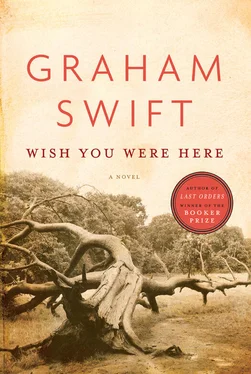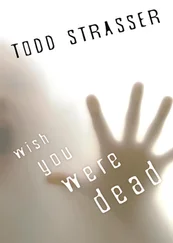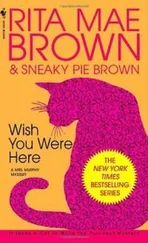He’d started life as a soldier by running away. Which was a common enough story. It was what half of B Company had done in their different ways. What were the alternatives? They’d handed over the problem to the army. Take me in, please, sort me out please, the whole package. With some of them you could see, clearly enough, that if it hadn’t been that, it might have been prison eventually, one way or another. You could picture their faces sometimes (and now he was a corporal, he’d sometimes tell them) behind bars.
And that might have been his case too, and it might not have been petty crime either. But that was all taken care of now. He stared at those letters.
But he’d still think about cattle. They haunted him and helped him, gave him a sort of measure. If he wanted, now, to get bad stuff out of his head, bad human pictures, it helped to replace them with cattle. He could still remember the wet jostle of the milking parlour, the smell of iodine and udder. He could still remember that daily treadmill of extracting milk from cows, and the thought that would sometimes come to him while doing it, that it was only the same essential process (so hardly a man’s job) by which human babies were nursed and eased into the world, by which he himself had once been nursed and eased — late and (apparently) tough arrival though he was. And it was a wonder how the grown-up world still needed, by the churn-load, by the tanker-load, this white, soft, pappy baby-juice.
He’d had that thought, especially, after Vera died, and wondered if Jack, in the next stall, was having it too. Their mum had died, but these damn cows still had to calve and be milked. But, at that time, the milking parlour was the best place to be.
What kind of thoughts were they for a future soldier? What kind of training was milking? But it was a cattle-existence often enough, a cowshed existence. They were mostly hard-nut townie boys and liked to think of him as a softie country boy, a bumpkin. But there were those who were hard outside and all mush inside, you could do without them. And there were those who might look soft on the outside (though not so much of that these days) but were hard underneath, and he knew now he was the second kind. Now and then they’d get a glimpse of it, too, and knew they shouldn’t argue — one reason he’d made corporal, and would make sergeant pretty soon.
By the time they were out here, most of them had that hard and soft stuff sorted out. They knew they didn’t have their mums around any more. They’d better be their own mums to themselves, and that wasn’t a joke. He could do that too. Set them an example. Sew on a button for them just like his own mum had done. Bite off the cotton. ‘There you are, Pickering. Now say thank you.’ Another reason he’d make sergeant. But he could also shoot people dead cleanly. Not like that useless cunt who’d shot Willis.
Another big advantage of being the country boy. Crows, pigeons, bunny rabbits. He’d been put on the sniper’s course and passed, flying colours. He had a skill to bring to the army.
Though no one had noticed that what he’d brought with him too was his anger. Sniping was supposed to be icy-cool, precise and careful, it was the opposite of blazing away. Yet it was anger that had driven him, that cold night, up that frozen track. Two years’ worth of simmering anger and of keeping a lid on it. He might have just done a bunk after he left school. He might have just legged it — and nearly had — that night after Luke got buried. Would Dad really have got him back? This is my boy and he belongs on my farm, he doesn’t belong in the army. Or would he have spat and said, ‘Good riddance’? Either way, he wanted it to be certain and clear. So he’d arrived on the army’s doorstep with at least two years’ worth of anger.
And was that, too, so unusual? The army welcomed anger. Was happy to channel and redirect it, even, maybe, cure it. If you were lucky and patient, it might even find you a real enemy to take it out on. And Tom didn’t mind who that was. A war on terror? That sounded like an open day for enemies, that sounded like a perfect opportunity for firing off lots of cool, disciplined, single rounds of anger. The first time he’d fired for real and seen his man drop, he’d felt anger fly out of him, he’d felt a great whoosh of sanity and calmness. Now he’d done it. He’d even thought he might never need to do it again, but of course it was required of him, it was what he was there for. As for the man he’d popped, he didn’t think about him. And he’d never known about it. It was clean killing. Not every soldier could do it, or wanted to.
But he was a corporal now and less of a sniper. He’d been credited with that other skill the army needed: leadership. And he liked it. Sniping was a solo business and he was a sniper these days only by occasional solo detachment. Otherwise, he had eight men to look after — seven, after Willis. When he’d been made corporal he’d felt for the first time like a big brother. Now he had some little brothers. And he no longer felt angry. He’d sniped it away, maybe.
Eight — seven — men. All townies, and him the only bumpkin, the one in charge. It was the accent of course that did it, the broad buttery burr he couldn’t get rid of, any more than he could get rid of the memory of milking. But no milksops among them now, especially after Willis. They were okay and would be okay, if he had anything to do with it. Some of them even found his voice soothing now, when he wasn’t barking at them. It wasn’t the obvious voice of a corporal, it was the voice of a cowman. It made them think of green English fields, perhaps, out here in the dust and crap. Well, they’d better forget all that. He could tell them about green English fields,
More the leader, less the sniper, but he still had the same, secret equal-vote of a wish they all had: that if his moment had to come (and if they had to do without him) it would just be clean and he wouldn’t know about it. Death by sniper would do, and in his case might even be called fair. But not, please, like Willis. Wheelchair Willis.
So when the IED — and it must have been a whopping IED — blew up under them, the whole section riding home, dog-tired, to beddy-byes, he thought it was unfair, but there was nothing he could do about it. He could see that Pickering and Fuller were out of it and he didn’t know who else might be okay or not, behind. He couldn’t move to look. It was all madness, but he was clear and calm and strangely comforted, not by his own burry voice, which didn’t seem to be working, but by the fact that he couldn’t hear anything. There must be a lot of racket, screaming, yelling, gunfire even, but he couldn’t hear any of it and he had no sense, either, of how much time was passing, if time was passing at all. He could smell fuel. He knew he was trapped under mangled metal, by his legs, but he couldn’t feel or move his legs, couldn’t move anything, even a hand, even, it seemed, his lips. Well, it would be all down to Lance-Corporal Meeks now, Dodger Meeks, if Meeks was still up and dodging.
Was this terror? The thing they were fighting? He saw the ball of flame bloom out, and he knew he wasn’t going to die by nice clean sniper fire, but was going to be burnt to death, but there was nothing he could do about it, and it seemed he had plenty of time to think about other things and the peace and quiet to do it in. He could think about not being in a blown-up armoured vehicle in Iraq, but being in the back of the school bus with Kathy Hawkes. He could move his hand then, all right, every fingertip. And he could think about being in a caravan, a caravan with just Jack and Mum. He could even think about Marilyn Monroe. He knew now that he should have written to Jack, at least answered one of those letters that he’d dropped in a stove in Germany. He could see the red, round opening of that stove. He’d write now, if he had a piece of paper and a pen and could move his hand. He’d explain that when Dad had thrust the gun at him he hadn’t taken it, for the simple reason that he’d known he’d have used it on Dad first, then on Luke. Or on Luke first, then on Dad. A tricky question, but same difference. There were two barrels. And he’d known, from the look in his eyes, that Dad was half expecting it, even wanting it, and that’s why he’d said that thing about decency. He’d known, anyway, when Dad had turned away with the gun, that he, Tom Luxton, had the killer instinct in him. And he’d have to put a lid on it.
Читать дальше








![Питер Джеймс - Wish You Were Dead [story]](/books/430350/piter-dzhejms-wish-you-were-dead-story-thumb.webp)



